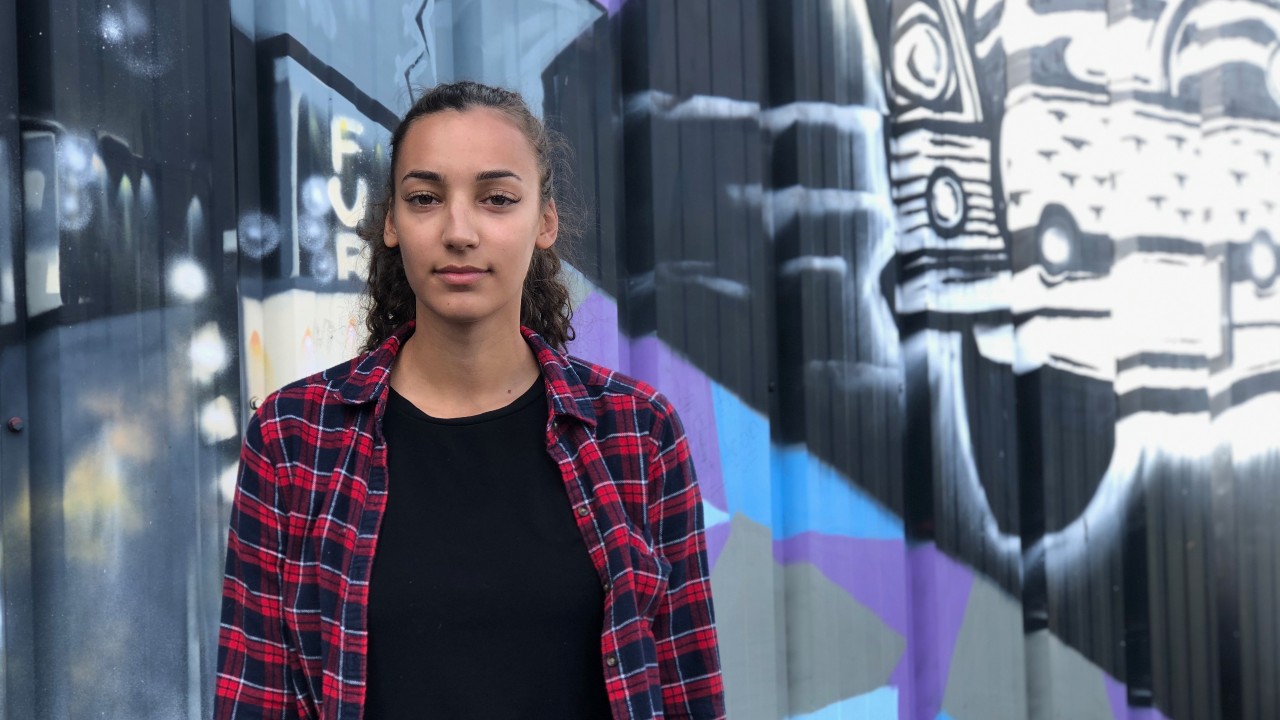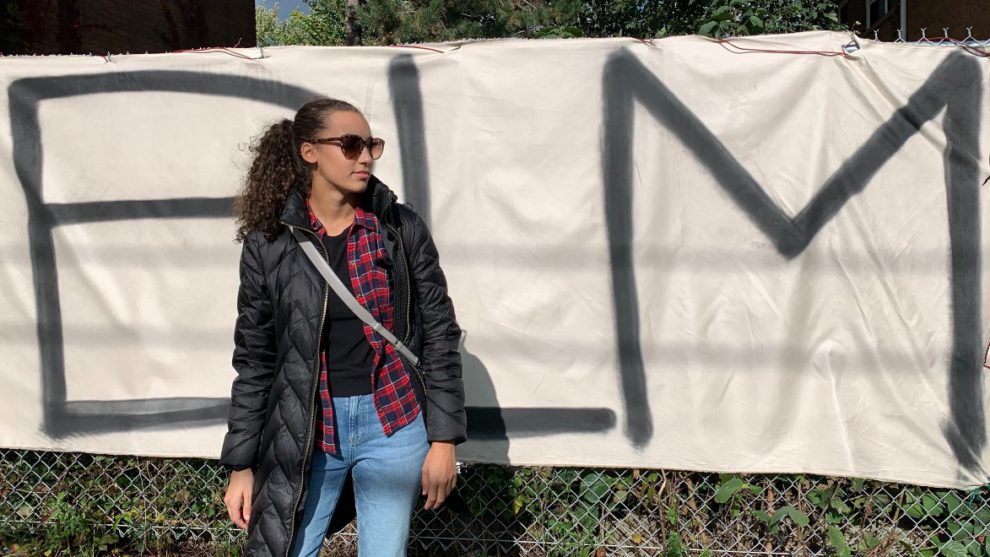Shelburne activist tackles environmental racism with new video
Project by eighth-generation Black Loyalist was part of Nocturne festival

caption
Vanessa Hartley is a Black Lives Matter activist from Shelburne. It is her first time using video to spread her message.In the time of COVID-19, when most people were just trying to cope and get by, Vanessa Hartley found her voice.
As the Black Lives Matter (BLM) movement swept across North America and the world, it spread into her small town of Shelburne, N.S. Along with other community members, she organized a BLM march that brought 600 people to the streets.
Hartley said for the first time, she defined herself as an advocate and now has a chance to take part in a new form of activism.
Hartley, an eighth-generation Black Loyalist, is also a new contributor to Nocturne: Art at Night. Nocturne is an art as activism festival that usually takes place on the streets of Halifax for one night. This year, the festival ran from Oct. 12-17, but due to COVID-19 aired mostly online.
Hartley’s project is a 10-minute video called Intercede. It tackles the issue of environmental racism in her hometown.
“I feel like there’s a lot to talk about and a lot of systemic barriers and systemic racism. I hope that this is the stepping stone to something bigger when it comes to talking about environmental racism in Shelburne,” Hartley said.
Her video was part of an Oct. 14 online Nocturne event that used dance, storytelling, spoken word, and song to tackle issues of race and environment, while centring Black and Indigenous voices.
She collaborated with Leelee Oluwatoyosi Eko Davis, a contemporary dancer. The video was filmed throughout September in significant Black historical locations in Shelburne, which helped inspire the content.
Hartley’s main goal? Clean drinking water for her community.
“Shelburne’s Black community in the south end has been bypassed not only once, but twice, for accessibility to town water. This is clean town water and it’s drinkable, and right now south end residents aren’t getting that,” Hartley said.
“A lot of people are dying of multiple myeloma, a very uncommon type of cancer, so it’s very concerning that we have multiple elders in our community dying from this.”
Multiple myeloma and other cancer cases in Shelburne have been linked to a toxic dump site that was built near the Black community in the 1950s. The dump was closed in 2016, but its environmental effects linger.
The issue of Shelburne’s dump was featured in Ingrid R. G. Waldron’s 2018 book, There’s Something in the Water: Environmental Racism in Indigenous and Black Communities. This book gained international attention for exposing instances of environmental racism in Nova Scotia. It was followed by a 2019 documentary of the same name, directed by Ellen Page and Ian Daniel.

caption
Vanessa Hartley stands in front of a Black Lives Matter banner on Gottingen Street in Halifax.Hartley is hopeful that Nocturne will help further spread the word of what is going on in Shelburne’s south end.
“Nocturne is definitely providing a great platform to be able to reach individuals across the province, as well as throughout Canada.… This event is really laying the groundwork for the start of something bigger in terms of environmental racism in Canada,” Hartley said.
Nocturne director Lindsay Ann Cory agreed that even though it is online this year, the festival is an important platform for activists like Hartley.
“We really feel at Nocturne that art can be a catalyst for connection. (Hartley’s project) is giving an opportunity for people to connect on a deeper level with the problem at hand, or with environmental racism, or with experiences that are unlike their own,” Cory said.
While Intercede was screened as a one-off showing during the Oct. 14 Meeting Waters online event, viewers can request access to watch the full event any time until Nov. 14.
Correction:
About the author

Nicola Seguin
Nicola is from New Brunswick, currently living on unceded Mi'kmaw territory in K'jipuktuk (Halifax). She has a political science degree from...

C
Cindy
D
Debra Williams
H
Holly Renaud
M
Murray Hagen
M
Melanie benham